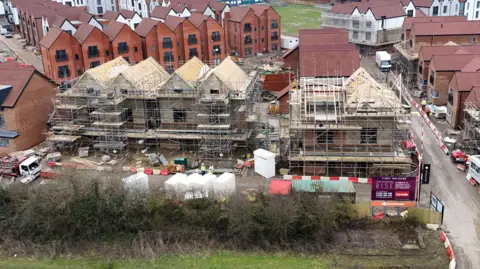The recent changes proposed by the English government regarding the environmental regulations for small housebuilders have sparked significant discussion and concern. With the aim to boost housing development on smaller sites, the government is contemplating easing the stringent Biodiversity Net Gain (BNG) requirements. These regulations necessitate that developers compensate for any loss of natural habitats when constructing new homes. The envisioned adjustments are chiefly aimed at supporting smaller construction companies, which historically have played a critical role in the housing market.
Currently, the BNG mandates that housing projects must deliver a 10% net improvement in biodiversity that persists over a span of 30 years. This requirement has been compulsory since February 2021, as part of the Environment Act. The government, under the stewardship of Housing Secretary Angela Rayner, is intent on creating a more streamlined planning process that would facilitate quicker construction on smaller sites. This initiative is crucial since smaller building firms have been noted to face numerous challenges that have contributed to a significant decline in their market share over the decades.
The government’s proposed reforms include simplifying the BNG criteria for minor developments of nine homes or fewer. Additionally, there are plans to delegate the approval powers for these smaller projects to trained planning officers instead of local councilors, further speeding up the process. It has also been suggested that sites accommodating between 10 and 49 homes might be shielded from taxes earmarked for the removal of hazardous cladding. Such measures could potentially make it feasible for small and medium-sized builders to re-enter the market with greater confidence and reduced financial burden.
Angela Rayner expressed that the aim of the reforms is to “level the playing field” for smaller builders. She emphasized the need for immediate action to simplify and enhance the fairness of the planning system, which could significantly contribute to fulfilling the government’s target of constructing 1.5 million new homes by 2030. However, not all perspectives on these changes are favorably aligned. Critics, particularly from the Conservative party, have labeled the reforms as detrimental, arguing that they would strip local councilors of essential voting rights on planning applications and jeopardize the integrity of green belt areas.
Kevin Hollinrake, the Shadow Secretary for Local Government, raised alarms that these reforms could result in higher taxes and diminished local governance in developmental matters. He cautioned that minimizing oversight around small-scale developments could lead to adverse consequences for local communities.
The backdrop of these proposed changes is the increasing challenge of meeting housing targets set by the government. Recent data from the Office for Budget Responsibility (OBR) indicated a downward trend in housebuilding activity, casting doubt on the likelihood of achieving the ambitious 1.5 million homes goal. The prior year witnessed a striking low rate of housing project approvals, with merely over 30,000 projects given the green light.
As the government embarks on consultations regarding the BNG modifications, industry stakeholders express mixed feelings. The Home Builders Federation underscored the importance of adhering to biodiversity practices while also recognizing the necessity for reforms to alleviate the pressures faced by small builders. They advocate that while the intent behind BNG is commendable—aiming to safeguard and enrich the natural environment—the execution of BNG requirements has proved excessively burdensome for smaller entities.
On the other side of the debate, conservation advocates, represented by organizations such as Wildlife and Countryside Link, urge caution against rolling back environmental protections. They warn that exempting smaller developments from BNG obligations could undermine the overall goal of positive biodiversity contributions and environmental stewardship in the housing industry.
As the dialogue continues, the potential impact of these proposed easing of environmental regulations will be critical not only for housing developers but also for the ongoing preservation of England’s natural habitats, which are increasingly under threat from urban expansion. The outcome of the government’s review of BNG requirements will be closely monitored by various stakeholders from environmentalists to the construction industry as it strategizes toward a more sustainable future in housing development.



